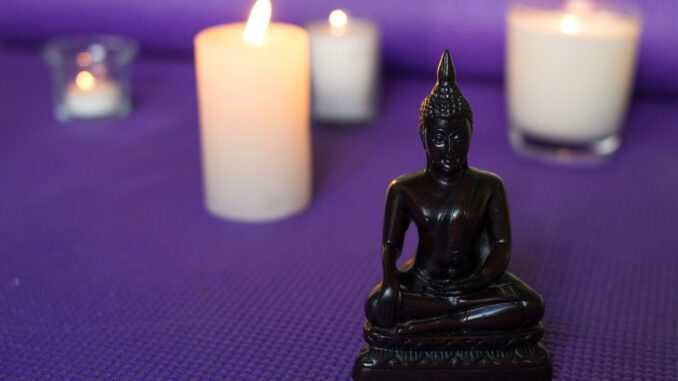
OCD Therapy and Counseling
Looking for an OCD therapist in Chicago? Do you have anxiety-fueled intrusive or ruminating thoughts? Are you the type of person who engages in daily rituals, such as touching objects, tapping body parts, or counting?
Have you reached the point where these behaviors interfere with your ability to live a more fulfilling life? If the answer is yes, you are not alone. Many of the clients we work with struggle with OCD or obsessive compulsive disorder.
When OCD symptoms become intense, they can wreak havoc on your day. This is particularly true if some of the ritualistic behaviors make you late for work or stop you from spending time with the people you love.
While researchers are not entirely sure, the current thinking is approximately 1 to 2 percent of American adults struggle with this condition (NIMH, 2023).
What’s unfortunate about OCD are the associated stereotypes. Examples include some believing people with OCD are “control freaks” or “neat freaks”. Some even refer to people living with OCD as “Germaphobes”.
Elements of OCD
If you are one of many people in Chicago with OCD, you may identify with the following elements associated with this disorder.
Obsessions
If you have obsessions, you may find it difficult to stop thinking about a particular topic, situation, or issue. These thoughts are repetitive and may be intrusive.
Almost always, there is very little evidence to support such thoughts, yet the associated emotions of anxiety and fear remain present.
Example: Jane works at an office just off the Brown Line at the Quincy stop in the Loop. She keeps having thoughts of the L train falling off the tracks. Throughout the day, she keeps having terrible thoughts about the train. She even spends hours researching train safety records.
Even at night, when she is safely at home, she keeps having intrusive thoughts about train accidents. With time, these thoughts abate but often take on a different form.
Now, Jane is obsessed with bus accidents.
Compulsions
Think of compulsions as compensatory behaviors that are designed to ward off something bad from happening. In many cases, these behaviors become ritualistic – and time-consuming.
Example: Eddie lives in a small apartment in Lincoln Park, Chicago. Each morning before he leaves his home, he has to tap on each of the salt and paper shakers 10 times each. The touch must be perfect and there can be no deviating from the exact number.
There have been times that Eddie has been late to work because he can’t pull himself away from the ritual unless it is done exactly right.
In Eddie’s mind, he truly believes that if he doesn’t engage in this activity perfectly, something very bad will happen. When asked exactly what that “bad” thing might be, he is not sure. All he knows is the tapping ritual prevents something awful from taking place – or at least minimizes the fallout.
Avoidance
A lot of people who have OCD engage in avoidance-type behaviors. Anxiety about catching an illness from a virus, bacteria, or term is a typical reason for the behavior.
Example: Kevin regularly shops for groceries at the Jewel-Osco in Chicago’s Lakeview community (Boystown). Not long ago, he found himself avoiding the meat department because a customer was sneezing. In his mind, he believed this person had some type of disease and that he was spreading germs.
Kevin avoided this part of the store for weeks because he was worried he might get “infected”. Because he began to obsess over this scenario (obsessive thoughts) he ultimately stopped shopping at this store and began going to a nearby competitor.

Five Common OCD Types
While OCD is the broad term used for an obsessive-compulsive disorder, there are five specific types. Here is a quick run- through of each.
Keep in mind that some of these may work in tandem with each other
1. Organizing Type
This one is perhaps the most common. If you have the organizing type, you may be obsessed with everything being in perfect order on a desk or all of the objects on a table being symmetrical.
Compulsions are used to offset the obsessions. An example might be ensuring all of the pencils are exactly aligned and that all face true north.
2. Contamination Type
If you struggle with contamination-type OCD, you may hold strong concerns about cleanliness. These worries most often are linked to worries about becoming infected with a bug, pathogen, or microbe.
For example, you insist on your spouse washing their hands intensely whenever they touch the doorknob or have contact with the wood floor. Another example might be washing your dog two times a day after taking him out for a walk.
3. Checking Type
Checking type OCD involves worries about something bad happening as a result of forgetting or being careless. Examples include repeatedly checking your stove’s gas burners to make sure they are off or verifying the bolt is locked on your front door five times.
For some with this type of OCD, the checking behaviors happen multiple times throughout the day or night. Everyone is different with some people involving themselves in these behaviors with frantic intensity.
4. Ruminations Type
While not the same as obsessive thoughts, ruminations are similar. The main characteristic of a rumination is that an idea gets stuck in your head and manifests with different thoughts.
5. Intrusive Thoughts Type
When you have intrusive thoughts, they pop into your head for no specific reason. For many people, these thoughts often involve something terrible happening, also known as harming thoughts.
The harm may involve yourself or someone you love. An example might be having an intrusive thought about dropping your baby or uncomfortable thoughts about a loved one being somehow hurt.
Sometimes, these thoughts can be very disturbing and cause a great deal of anxiety. In fact, it’s a topic that comes up often as part of anxiety therapy for our Chicago clients.
OCD Doesn’t Have To Ruin Your Life!
Treatment for OCD
Working through OCD is a collaborative endeavor where you and your therapist create a hierarchy of feared situations and create a plan of action.
Treatment approaches can include but are not limited to:
- Exposure therapy.
- Cognitive Behavioral Therapy.
- Mindfulness-based interventions.
For some people, a referral may be given to a medical doctor or psychiatrist for a medication evaluation. Much depends on your unique situation.
To make an appointment to discuss your OCD, please send us a note using our confidential contact form.
If you are looking for an OCD Therapist in Chicago, The Calm Anxiety CBT Therapy Clinic Wants To Work With You!
References
NIMH. (2023). Obsessive Compulsive Disorder. Retrieved from National Institute of Mental Health: https://www.nimh.nih.gov/health/statistics/obsessive-compulsive-disorder-ocd

